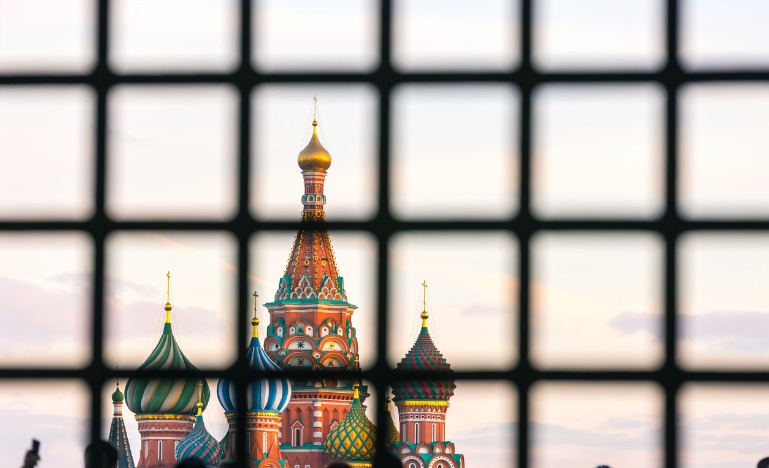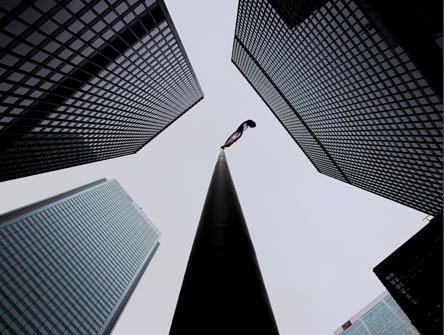A new era for trade
Understanding the risks that come with far-reaching sanctions and export controls is critically important for businesses and their legal counsel to understand.

With Russia's brutal invasion of Ukraine, sanctions are now front-page news. But for trade lawyers and in-house counsel, what was once a niche practice has become a crucial concern for many companies.
Clifford Sosnow, a partner at Fasken and co-chair of the firm's International Trade and Investment Group, has seen the scope of sanctions and export controls explode during his more than 30 years as a trade lawyer.
"It has taken up a growing part of my practice," Sosnow says. "The Russian sanctions have brought to the fore for businesses for the first time just how far-reaching these sanctions have become, how critical they can be to their own businesses and the due diligence they have to do."
The Toronto lawyer can remember the "horse and buggy age" when the overriding issue for Canadians was the imposition of U.S. sanctions against Fidel Castro's Cuba. Canada actively opposed the measures, and Parliament passed legislation making it illegal for Canadian companies to follow the American rules.
The current era of sanctions began in 2007, when Canada imposed broad prohibitions on Myanmar in response to human rights violations, impacting imports, exports and investment, says Sosnow. Sanctions have now spread to 21 countries, including North Korea, Iran, Belarus and China.
Canada's first sanctions on Russia date to 2014, following its illegal annexation of Crimea. The latest sanctions, imposed in waves beginning with the Russian invasion of Ukraine in February, are unprecedented in their scale and speed and the concerted action among the Western economies.
Trading with Russia has not been banned except in specific areas, like the importation of crude oil. But Ottawa has removed "most favoured nation" status from Russia, meaning that virtually all imports are now subject to a 35% tariff.
Canada has also placed export controls on products including military goods, computers and oil production equipment, says Michael Woods, an Ottawa lawyer who began his career as a diplomat and government trade negotiator before moving into private practice. Usually, that means that products can still be exported, provided you first obtain a ministerial permit. But the federal government now indicates it won't grant these permits, said Woods.
The sanctions names hundreds of individuals and entities, including oligarchs and members of Russian President Vladimir Putin's circle and bans all dealings with them. That means a Canadian entity may run into trouble if it imports something produced by an oligarch-controlled company, or assists in an investment in Canada by a sanctioned person.
Even if you legally get permission to complete a transaction, there's an added problem. "If you're dealing with Russian banks, how are you going to get paid?" says Woods. Canada and its allies have slapped sanctions on Russian banks, now banned from the SWIFT payment system.
For lawyers providing sanctions advice, there is a simple rule before a client even steps into the room, says trade lawyer Mark Warner. "The first step is 'know your client.' Who are you? What's your source of payment? What's your issue? A lot of times you don't even get past that stage."
Not only do companies and individuals have to know whom they're dealing with, they have to assure that they know the source of their goods. Gordon LaFortune, Woods' legal partner, cites the case of an oil trader who buys a shipment of gasoline that he believes is Dutch. But customs officials investigate and discover it's really Russian.
"At that point, you would have sold all the oil and you're not going to have the 35% duty they're asking you to come up with."
For Annie Choquette, Assistant General Counsel at Canada Steamship Lines (CSL), dealing with sanctions is nothing new but what was striking to her was the speed at which the Russian measures were implemented. The Montreal-based company operates a fleet of over 60 bulk carriers worldwide and has a robust compliance programme.
"When the Russian sanctions began increasing, we did an internal assessment of our current contracts, suppliers and customers," she said. "We did a risk assessment to see if there was anything linked to Russia. We were lucky. We could have had a commercial contract in Russia that was legal before and became illegal now. We didn't."
As an intermediary, a shipping company like CSL has to make sure it knows who its customers are, where the iron ore or grain it carries originates, and the ownership of any vessel it charters. Choquette said that she knows of other companies that have been caught with ships in Russian waters, at risk of getting seized by Russian authorities, unable to be paid or with problems getting insurance.
Beyond these difficulties, there's also the reputational risk for companies, both with investors and consumers. Global brands from Coca-Cola to IKEA have pulled out of Russia because of the huge hit their brands would suffer if they're seen to profit while the Russian army conducts a bloody war. That's led Canadian companies as varied as McCain Foods and Kinross Gold to shut down their Russian operations.
As if adhering to Canada's sanctions regime wasn't enough, clients have to make sure they don't fall afoul of U.S. rules. "In the export control field, a lot of Canadians would be surprised how often it is that you find Canadians who get caught up in the American export control regime," says Warner. Unlike in Canada, where prosecutions are few, U.S. authorities actively pursue cases.
Warner cites the case of an Iranian citizen living in Montreal and his Iranian-Canadian business partner who were charged last year in Washington, D.C. with exporting U.S.-made lab equipment to Iran that can be used in nuclear weapons development. If convicted, the men could face maximum jail sentences of 20 years.
The issue for Canadians is that supply chains with the U.S. are highly integrated, says Woods. In the case of Russian sanctions, manufacturers who use U.S.-made components have to make sure that the finished product is permitted not just by Canadian rules but also by U.S. rules because the two control lists are not identical.
The U.S. is more aggressive on prosecutions and penalties. The maximum Canadian fine for violating sanctions is $25,000, and although there's a maximum jail sentence of 10 years, Woods says it's never been imposed. In the U.S., by contrast, "The fines are just enormous. Millions of dollars."
With all these obstacles, do lawyers occasionally tell their clients to avoid Russia entirely? Sosnow says that's not his job. "I have to tell them, 'you're walking through very swampy territory' and tell them where the swamps are. But ultimately, it's their decision."


